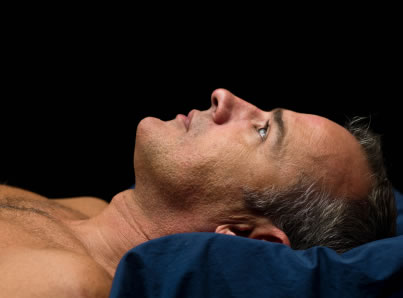
istockphoto
A simple one-hour therapy session has helped to cure 73% of people suffering from acute insomnia, according to a new study from Northumbria University released today.
In the first ever study to attempt to treat insomnia in the acute phase – before it becomes chronic – researchers found that almost three-quarters of participants saw improvements in the quality of their sleep within three months following a 60-minute cognitive behavioural therapy session.
The findings, which have been published today (Monday 1 June) in the international journal SLEEP, are especially important as those transitioning from acute to chronic insomnia are particularly vulnerable to the onset of depression due to the condition.
People with insomnia report consistent issues with the quality, duration or continuity of their sleep patterns. They may find it difficult to fall asleep, struggle to go back to sleep on waking during the night or wake early which can lead to problems with attention, concentration, mood and memory. Approximately one third of the adult population reports symptoms of insomnia, with 10% suffering from an insomnia disorder. [continue reading…]
Published: January 12, 2011
According to a recent study accepted for publication in The Endocrine Society’s Journal of Clinical Endocrinology & Metabolism (JCEM), exposure to electrical light between dusk and bedtime strongly suppresses melatonin levels and may impact physiologic processes regulated by melatonin signaling, such as sleepiness, thermoregulation, blood pressure and glucose homeostasis. [continue reading…]
 I have a brilliant friend. He is really very clever, but one thing he doesn’t do well is sleep. Well Mark, you may be interested in this new research study. Did you know that the brains of older adults with chronic sleep problems look different from those of adults who have enjoyed enough sleep. Yet the older adults function well despite their lack of sleep. They switch to a continuous form of mild stress, as a result of which they sometimes even perform better than contemporaries who enjoy a good night’s sleep according to Dutch researcher Ellemarije Altena. [continue reading…]
I have a brilliant friend. He is really very clever, but one thing he doesn’t do well is sleep. Well Mark, you may be interested in this new research study. Did you know that the brains of older adults with chronic sleep problems look different from those of adults who have enjoyed enough sleep. Yet the older adults function well despite their lack of sleep. They switch to a continuous form of mild stress, as a result of which they sometimes even perform better than contemporaries who enjoy a good night’s sleep according to Dutch researcher Ellemarije Altena. [continue reading…]
Published: October 6, 2009
 A study in the Oct 1 issue of the journal Sleep shows that long-term alcoholism affects sleep even after long periods of abstinence, and the pattern of this effect is similar in both men and women. Results indicate that in long-term alcoholics who had not had a drink for up to 719 days, the percentage of slow wave sleep was significantly lower (6.6 per cent in men, 11.1 per cent in women) than in controls (12.0 per cent in men, 12.1 per cent in women). [continue reading…]
A study in the Oct 1 issue of the journal Sleep shows that long-term alcoholism affects sleep even after long periods of abstinence, and the pattern of this effect is similar in both men and women. Results indicate that in long-term alcoholics who had not had a drink for up to 719 days, the percentage of slow wave sleep was significantly lower (6.6 per cent in men, 11.1 per cent in women) than in controls (12.0 per cent in men, 12.1 per cent in women). [continue reading…]

 A study in the Oct 1 issue of the journal
A study in the Oct 1 issue of the journal 